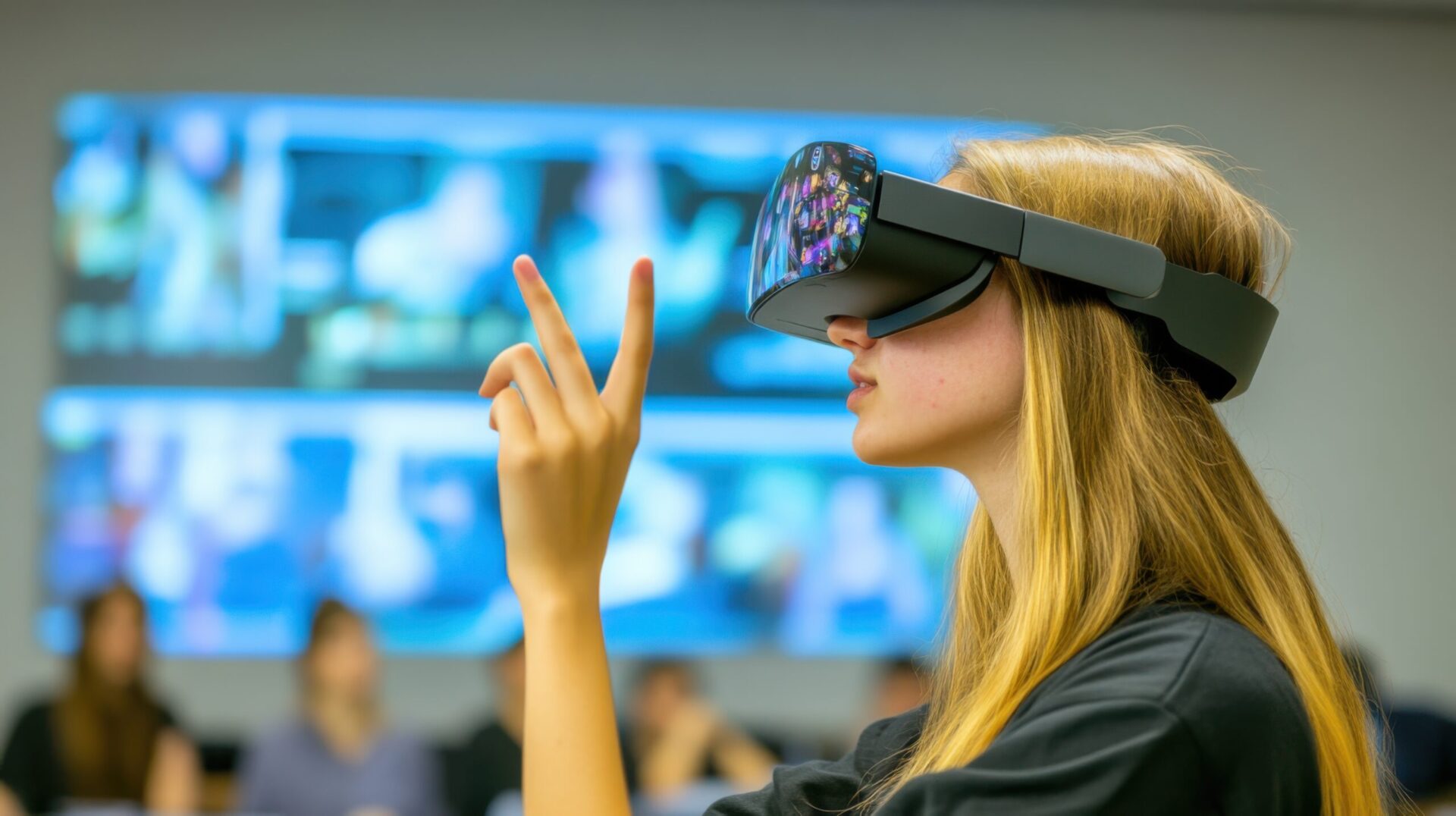
The use of virtual reality in college science classes increases young people’s engagement and interest in subjects such as chemistry, physics and biology.
This is the finding that emerges from a study conducted in five CEGEPs by a team led by Bruno Poellhuber, a researcher in the Faculty of Education Sciences at Université de Montréal. This collaborative design-oriented research initially focused on developing and refining computer-based and immersive virtual reality scenarios.
The study took an unexpected turn during the pandemic, when distance learning increased, as did efforts to adapt to this new situation. The number of teachers participating in the project then increased from 15 to more than 40, while the initial target of 500 students eventually exceeded 7,000.
This unexpected sample size makes the results even more robust, and they are indisputable: the use of virtual simulations significantly increases young people’s interest and affective engagement in science learning. For their part, teachers see it as an opportunity to diversify their teaching methods and promote more active learning.
The positive effects are, however, closely linked to the quality of the teaching scenario in which virtual reality is used, i.e. all the advance preparation and the way in which the activity is integrated into the course as a whole. Post-activity debriefings are also crucial. Thus, although virtual reality can be very useful, the role of teachers remains essential in optimizing its effectiveness.
In order to use this method to its full potential, teachers therefore need to receive training and guidance in designing appropriate scenarios, including support from educational advisors.
Reference
Christine Marquis, Bruno Poellhuber, Sébastien Wall-Lacelle, “La réalité virtuelle pour mieux apprendre les sciences : des scénarios pédagogiques favorisant la motivation, l’engagement et le flow”, Spectre, Issue 52, November 2022: https://www.researchgate.net/publication/375161072_La_realite_virtuelle_pour_mieux_apprendre_les_sciences_DES_SCENARIOS_PEDAGOGIQUES_FAVORISANT_LA_MOTIVATION_L’ENGAGEMENT_ET_LE_FLOW
Want to learn more about this research?
Read the research report or watch the webinar with Bruno Poellhuber.
